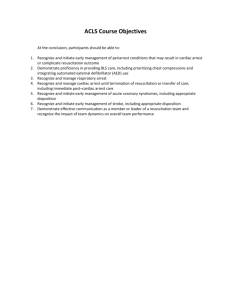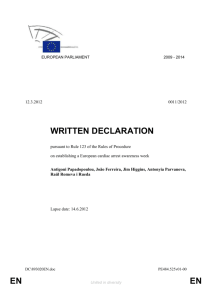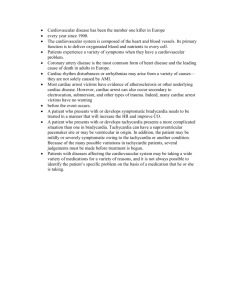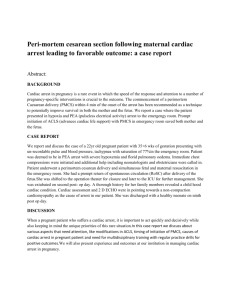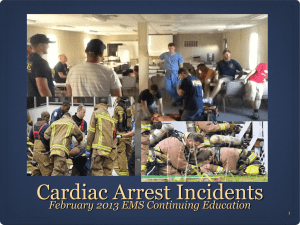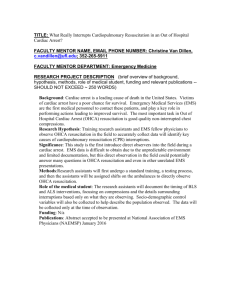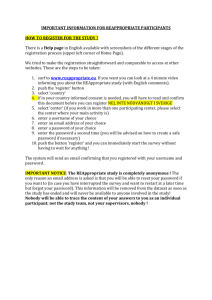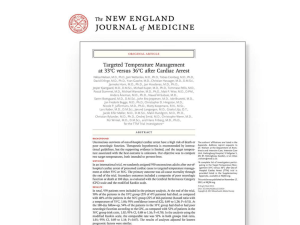multi-centre study into the relationship of memories
advertisement
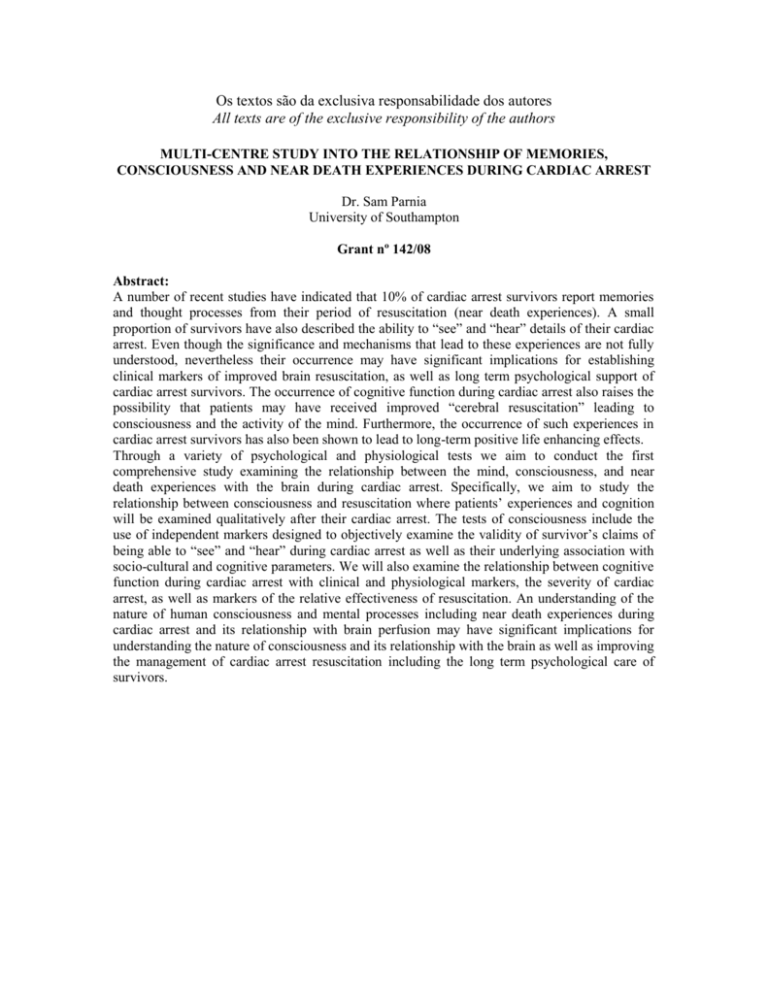
Os textos são da exclusiva responsabilidade dos autores All texts are of the exclusive responsibility of the authors MULTI-CENTRE STUDY INTO THE RELATIONSHIP OF MEMORIES, CONSCIOUSNESS AND NEAR DEATH EXPERIENCES DURING CARDIAC ARREST Dr. Sam Parnia University of Southampton Grant nº 142/08 Abstract: A number of recent studies have indicated that 10% of cardiac arrest survivors report memories and thought processes from their period of resuscitation (near death experiences). A small proportion of survivors have also described the ability to “see” and “hear” details of their cardiac arrest. Even though the significance and mechanisms that lead to these experiences are not fully understood, nevertheless their occurrence may have significant implications for establishing clinical markers of improved brain resuscitation, as well as long term psychological support of cardiac arrest survivors. The occurrence of cognitive function during cardiac arrest also raises the possibility that patients may have received improved “cerebral resuscitation” leading to consciousness and the activity of the mind. Furthermore, the occurrence of such experiences in cardiac arrest survivors has also been shown to lead to long-term positive life enhancing effects. Through a variety of psychological and physiological tests we aim to conduct the first comprehensive study examining the relationship between the mind, consciousness, and near death experiences with the brain during cardiac arrest. Specifically, we aim to study the relationship between consciousness and resuscitation where patients’ experiences and cognition will be examined qualitatively after their cardiac arrest. The tests of consciousness include the use of independent markers designed to objectively examine the validity of survivor’s claims of being able to “see” and “hear” during cardiac arrest as well as their underlying association with socio-cultural and cognitive parameters. We will also examine the relationship between cognitive function during cardiac arrest with clinical and physiological markers, the severity of cardiac arrest, as well as markers of the relative effectiveness of resuscitation. An understanding of the nature of human consciousness and mental processes including near death experiences during cardiac arrest and its relationship with brain perfusion may have significant implications for understanding the nature of consciousness and its relationship with the brain as well as improving the management of cardiac arrest resuscitation including the long term psychological care of survivors.
